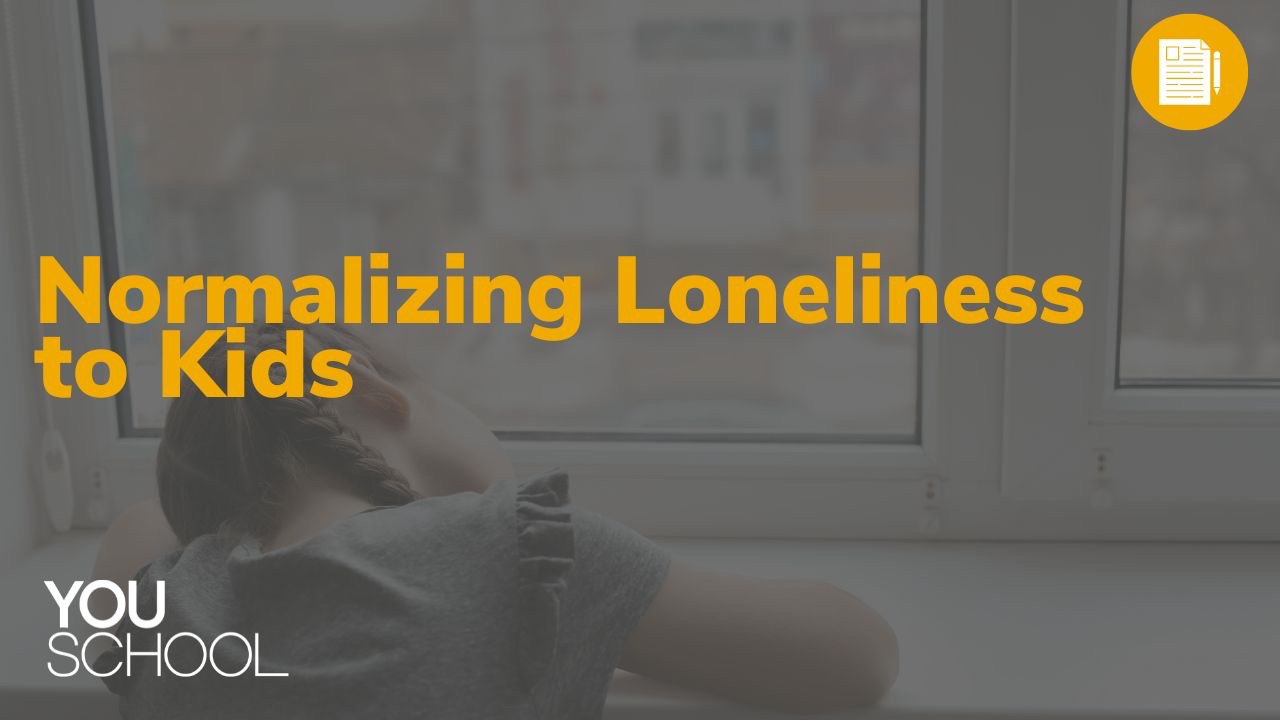Normalizing Loneliness to Kids

We all get lonely. It’s one of the most common human experiences. In fact, research has proven that we’re living in the most lonely time in history. Here are some stark facts:
- 60% of people in the country report feeling lonely regularly, which is worse than rates of obesity 1.
- 17% of U.S. adults report feeling lonely "a lot of the day yesterday," representing an estimated 44 million American adults experiencing significant loneliness 2.
- 61% of young adults feel "serious loneliness" 2.
And the effects of loneliness are pervasive on every level. Lonely people are more anxious, have lower self-esteem, are more pessimistic, and are afraid other people will dislike them 2. Studies have shown that feeling lonely can cause cortisol levels (the hormone which causes stress) to increase as much as in a physical attack 3. Loneliness raises mortality risk, weakens the immune system, and has other debilitating physical health impacts 3. One study likens the negative health effects of loneliness to smoking 15 cigarettes a day 4. Loneliness is a precursor to depression 1.
Author and social scientist, Johann Hari, set out in his 2018 book, Lost Connections: Why You’re Depressed and How to Find Hope, to understand the root causes of depression, as well as the most effective, evidence-based strategies to overcome it. What he uncovered is, on some level, revealing to the point of shocking: people everywhere are feeling acute, chronic loneliness on a level never before seen, and it’s not only killing people but stealing joy and well-being. But on another level, we must admit it’s no surprise at all—just look around. In fact, you don’t have to look around very far; start by looking within. We all feel it.
Loneliness almost always carries with it a cruel irony, especially in our post-pandemic. Many people find their lives filled with people- friends, family, colleagues, or fellow students. Their calendars are jam-packed with social events, and their screen time reveals an inordinate amount of time scrolling through the posts from their ‘connections.’
You can be completely social yet as lonely as ever.
Loneliness is an uncomfortable, sometimes awful feeling. But it’s also a signal. Loneliness is a cue for connection, which is a different experience than being social. From an evolutionary standpoint, feeling lonely is a reminder that alone, the danger persists, but together safety and security are found.
Some people, however, haven’t yet developed a proper awareness of their loneliness or the strategies to resolve it. Especially young people. They don’t know how to understand their uncomfortable feelings of loneliness or resolve them wisely. Oftentimes the options at their disposal are the quickest fixes: dopamine hits from scrolling through social media, shopping, drinking, or working. Those chemical releases can take the edge off the uncomfortable loneliness, but they don’t address their deeper need for authentic engagement.
So how can we help them? I believe it starts with sharing more openly with them about our own loneliness. No one escapes it, yet we hardly talk about it. There’s too much shame wrapped around it, as though feeling lonely was a humiliating sign of weakness. It’s not; it’s normal.
Feeling hungry is normal. Getting tired is normal. Thirst is normal, too. They’re all signals, just like loneliness.
The more we normalize loneliness, talk about it, and demonstrate mature, healthy choices like reaching out to friends, clearing our schedules from busy events and inviting people to spend time together, putting our phones down, and turning Netflix off, the more we will lead our kids to the quality of connection and quality of life they long for.
P.S. What if there was a way to get the best resources to impact the kids in your life—delivered to you at the right time?

